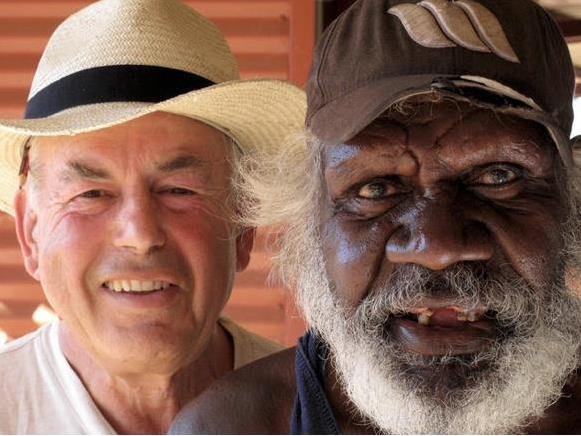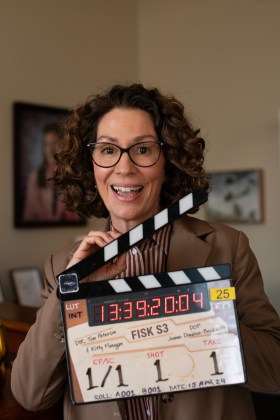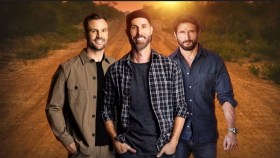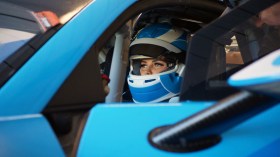Image: Ronin Films. ‘Aspects of a Life’ combines four of Edol’s films with Aboriginal subjects with an interview and a book, all remastered and brought back to the public eye by Ronin Films.
Mike Rubbo is probably the first Australian documentary maker to flower overseas as an untrammelled artist working with colour and synch sound. He made a bunch of films for the Canadian National Film Board which were wry, playful, personal, thoughtful and open before he came back here to another life.
The point of this reflection being that he has a deep understanding of the medium and deserves great respect for his observations.
He wrote a post for Film Alert 101 about ‘Michael Edols, director, cinematographer boat-builder, a wonderfully warm man. He died on Tuesday evening this week, July 3rd.’
This note is to share that story, which both honours the man and tells us something of the documentary camera and the eye of the user.
That journey took him into a collaboration with Esben Storm on feature films 27A and In Search of Anna, across Asia for the Commonwealth Film Unit, a trilogy of films about Aborigines called Lalai Dreamtime, Like Wind Blow’en About – This Time and When the Snake Bites the Sun. He was a cinematographer on Tidikawa and Friends, on The Man Who Couldn’t Stop, and Solzhenitsyn’s Children… are Making a Lot of Noise in Paris for Mike Rubbo, and Ballad of the Little Soldier for Werner Herzog. He shot for Paul Cox on his Greece film Island.
He worked for Beyond, made commercials, shot for ABC TV, and made Hear Is My Hand – An Aboriginal Memorial with the Ramingining Community and the Central Arnhem Land Council.
In 1998 he taught at the Vancouver Film School and worked on Indian-Canadian features Ordeals of Love and Stingers and a TV documentary The Irrepressible Life of Roy Kiyooka.
Edols own website, built nearly twenty years ago, provides a more intricate story, again with a lovely human touch.
Some peoples’ life experience transforms them, making it almost impossible to define links with the past. Michael Edols’ life hasn’t been like that. It’s been a series of stepping stones, beginning in Northern Borneo at age three.
He and his father (who was building an open-air cinema on the banks of the Segama River) lived in the Murut longhouses for seven years. Each day of those years, Michael was taught by the Dusan jungle hunters, learning to observe and tell stories as they do. Hundreds of images and sensations still flood his memory – perspectives on the natural environment and a way to live far beyond Western experience. At the age of ten, he was sent to a Melbourne boarding school, and his stories were not believed. He picked up a box Brownie with serious intentions, and began to record images.
What a way to start a life in film. The bio ends with this:
“No, I’m not, I’m 58! I am still doing the work I want to do, whatever the genre. And it still comes with its essential ingredients; it must be interesting; it must have an element of creative or commercial challenge; it must involve interesting people, who make tangible contributions to the project. And I like to think we are all in this together or not at all. It’s something the Dusans taught me in Borneo. Look into the distance and then back to the microcosm. You’ll learn something about the distance.”
That was not the end, of course.
He is honoured on Facebook; in his last post he shared this video.
Ronin Films conducted an interview with him which contains an extract about the moment when he cut loose from conventional filmmaking; he calls it the moment which changed his life.





